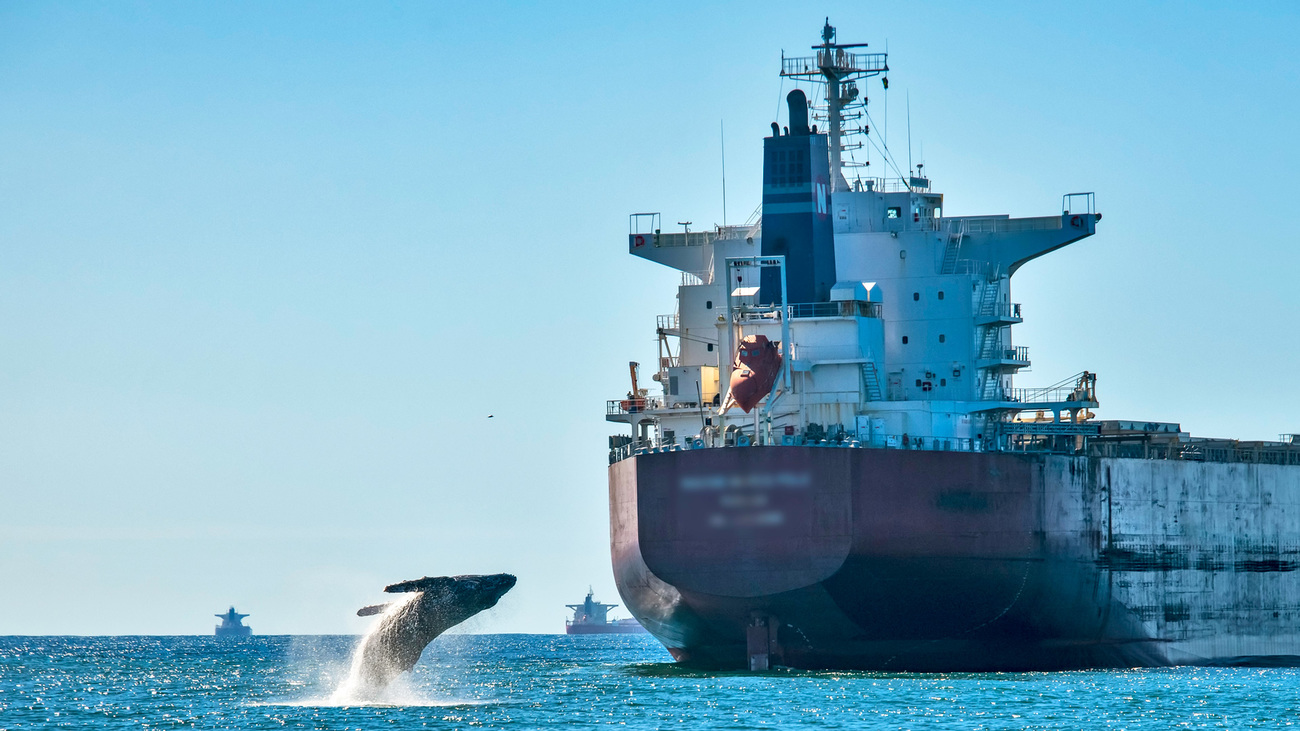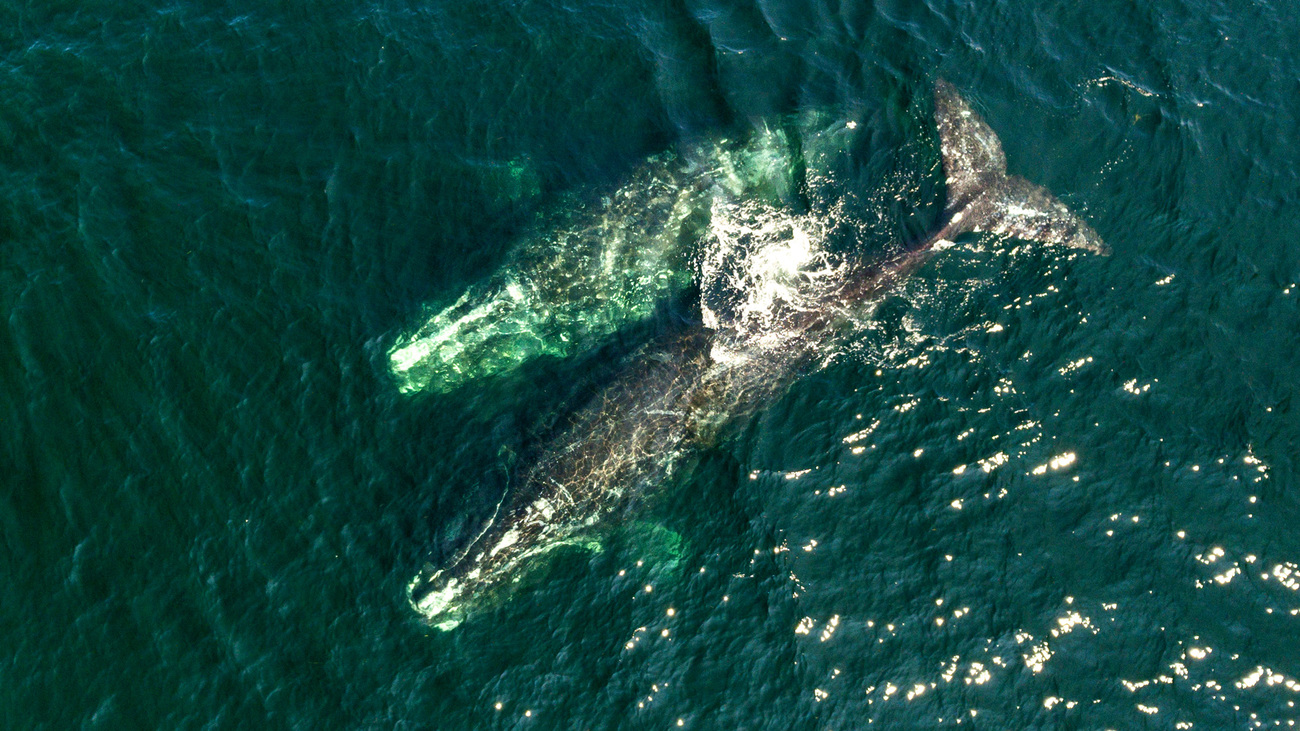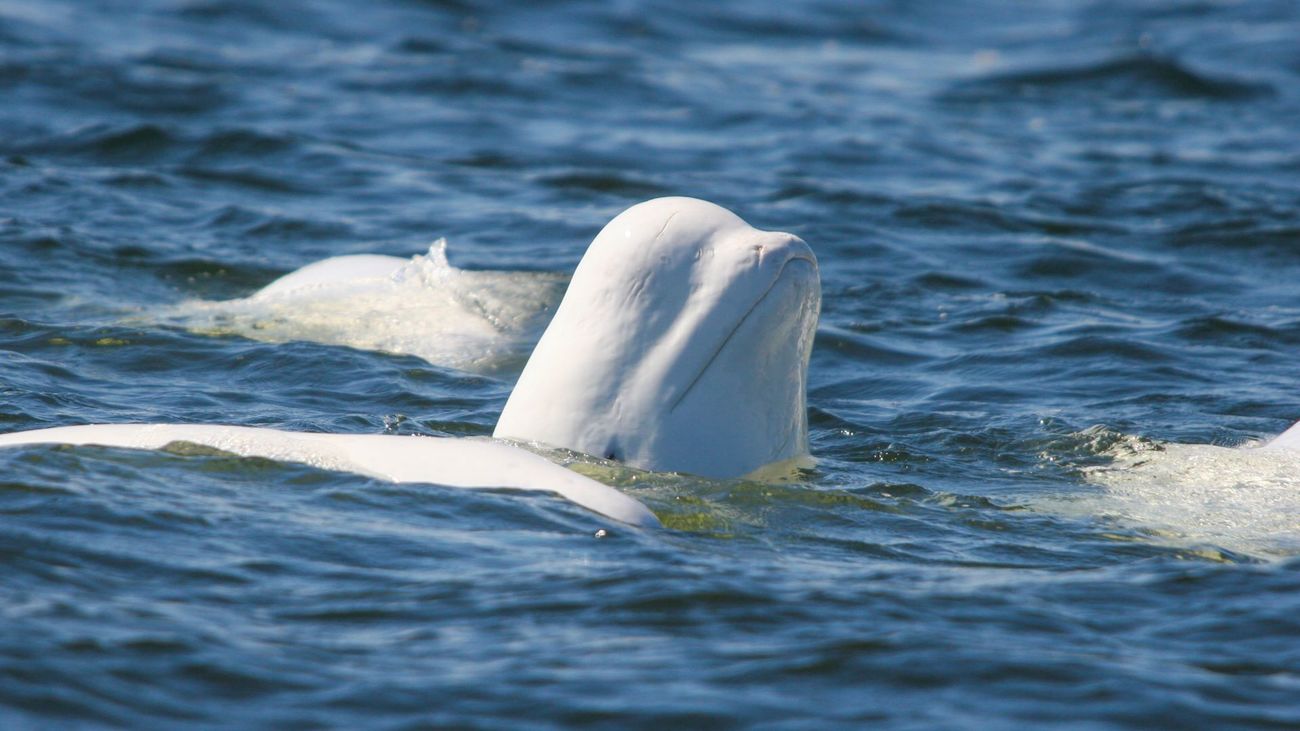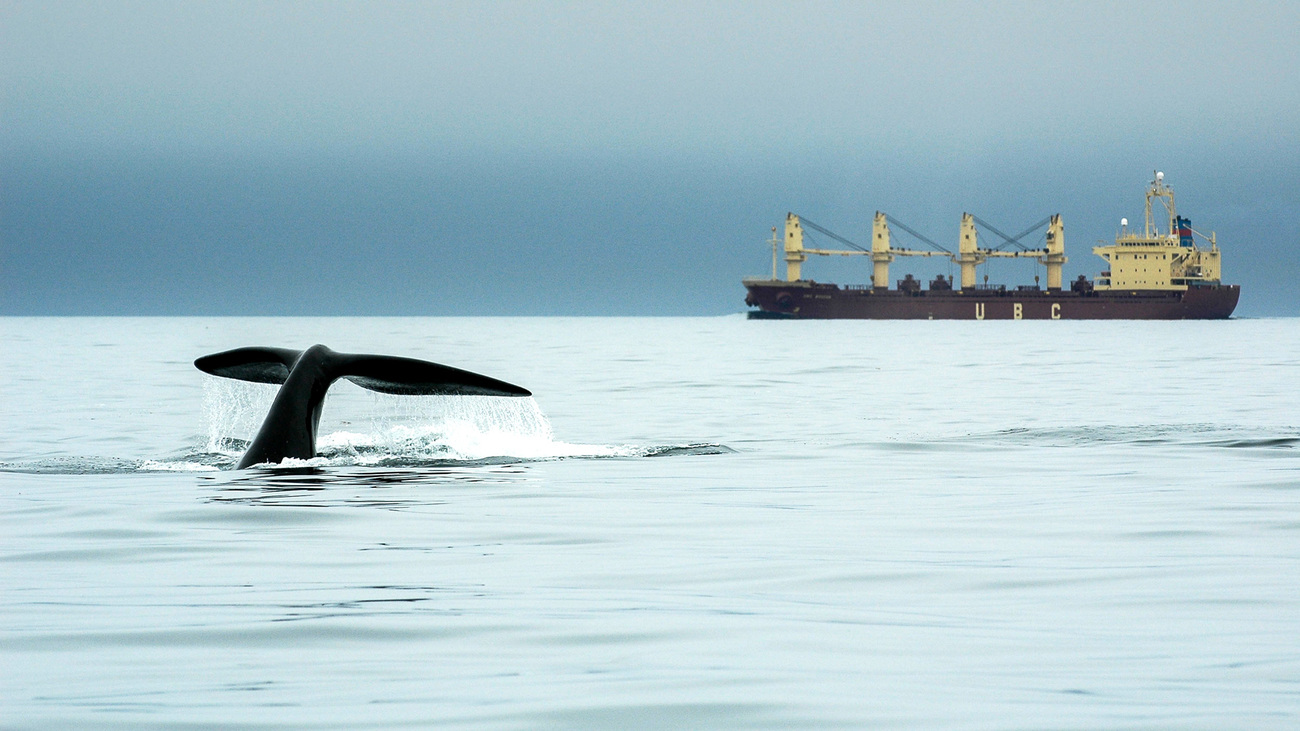Blog
What is Earth Day?
Read moreThe impact of climate change on whales
In 2024, our planet is experiencing record-breaking temperatures and increasingly unpredictable severe weather. Long-term shifts in temperatures and weather patterns around the world since the industrial revolution are rapidly changing our planet’s climate and threaten around one million species with extinction.

Marine species face some of the most pressing threats from climate change. Ocean temperatures are warming, currents are changing, and sea ice is melting in polar regions. These changes have negative effects on whales, the largest residents of the sea.
Whales are incredibly important to their ecosystems, supporting marine life and also human life by supporting the production of much of the world’s oxygen. Finding solutions to climate change is of the utmost importance in protecting these majestic mammals.
IFAW is a global organisation dedicated to protecting animals around the world, including whales. We work to mitigate the major threats they face, including climate change, entanglement, vessel strikes, and ocean noise pollution. Learn more about how we are working to save the critically endangered North Atlantic right whale from extinction.
Here are some of the ways in which climate change is impacting whale species—and how we can help them.
Many whales, including the critically endangered North Atlantic right whale, feed on tiny organisms called zooplankton. Plankton are some of the first organisms to feel the effects of temperature changes. Zooplankton often feed on phytoplankton, many of which survive better in cooler temperatures. Rising ocean temperatures can deprive zooplankton of their primary food source, thus killing them off. Drought is also known to kill phytoplankton and decrease the food availability of zooplankton.

Sea ice coverage is a determining factor in the habitat of zooplankton. The melting of our planet’s polar ice caps will affect where whales can find them.
These are big changes for tiny organisms, and the effects are felt throughout the food web. Without zooplankton, the whales that eat them will die off. As climate change continues to shift the areas where these organisms live and cause declines in their population, the future is grim for whales.
Toothed whales, who feed on larger fish, are impacted, too. For instance, climate change is affecting the distribution of salmon due to increased flooding in winter, decreased stream flow, increased temperatures, and changing conditions in the ocean. Killer whales rely on these salmon to survive. Changing food distributions can cause whales to dive longer, deeper, and more frequently to find food, which puts them in danger, increasing their stress and exhaustion and reducing their energy levels.
The melting of the sea ice in the Arctic and Antarctic regions is of particular concern to certain species, such as beluga whales. When ice begins rapidly melting and floating to different areas, it affects the areas where belugas swim, creating unpredictable patterns of ice. Belugas may become unable to travel through their historic migration routes, and they may get trapped among the ice if they get confused.
In addition, these whales can suffer from the inability to access prey when they are blocked in by ice. In some cases, they may run out of space to come to the surface to breathe, leading to suffocation.

Increasing water temperatures can affect the chemistry of the ocean. Pollution is already an issue, as human activities dump plastic, chemicals, and other pollutants into the ocean. But warmer waters can elevate the concentration of these pollutants in the ocean, leading to higher concentrations of contaminants in whales’ bodies as they ingest them.
These pollutants can impact a whale’s immune system and female whales’ ability to reproduce. For species like the North Atlantic right whale, which only has 70 reproductive-age females remaining, every mother whale matters to the species’ survival.
In a few different ways, climate change is altering the chemistry of the ocean.
The melting of floating sea ice is leading to the salty seawater becoming freshened, because this ice that is melting is not saltwater. This impacts the habitat of whales, who are saltwater species, and their prey species.
Ocean acidification is also impacting whales. Increased carbon dioxide in the atmosphere leads to the acidification of seawater, which not only affects the presence and distribution of prey species such as salmon, but also impacts whales’ ability to communicate through sound. Whales rely on sound for communication, hunting, and navigating, and they can ‘talk’ to each other over hundreds of kilometres. However, acidification changes the way sounds are absorbed in the water.
Though climate change threatens their survival, whales can be our pivotal allies in our fight to mitigate the climate crisis.
As they sit at the top of the marine food chain, whales play an important role in maintaining healthy ocean habitats. When whales dive into the depths of the ocean, they help stir up and circulate nutrients. This supports the production of phytoplankton at the water’s surface. Like plants, phytoplankton photosynthesise—changing carbon dioxide to oxygen—which not only removes the greenhouse gas from the atmosphere but also produces 50% of the oxygen in the world, supporting all life on Earth. In addition, whales’ faeces help feed phytoplankton, supporting this process.
As massive animals, whales also help sequester carbon in their own bodies. When a whale dies, it sinks to the sea floor, capturing tonnes of carbon there for years after its death.
In these ways, whales are some of our greatest allies in combatting climate change, so it is vital that we work to protect them.
IFAW’s marine conservation programme and our marine mammal rescue programme work to support whales around the world and protect them from the threats they face, including climate change, entanglement, vessel strikes, and ocean noise pollution.
In North America, we are racing to save the critically endangered North Atlantic right whale from extinction—a species which has only around 350 individuals remaining. Entanglement is a huge issue for this species, so we’re working with fishermen, gear manufacturers, and policymakers to support innovative solutions like whale-safe fishing and lobster gear.
In addition, we’re working to prevent vessel strikes—a leading threat to the survival of North Atlantic right whales in North America, blue whales around Sri Lanka, sperm whales in the Mediterranean, and Bryde’s whales in New Zealand. In some cases, this means moving shipping lanes away from critical whale habitats or imposing stricter vessel speed limits. We’ve introduced our Whale Alert app to help those on the ocean know where and when they might encounter whales to avoid collisions. Our marine rescue team conducts necropsies and research to collect scientific data that informs our work.
Another whale species we’ve been dedicated to protecting is the grey whale. Our efforts include a historic, successful campaign to protect Laguna San Ignacio, one of the last pristine birthing lagoons of the eastern Pacific grey whale in Baja California, Mexico, from industrial development. IFAW also led scientific, on-site monitoring and policy engagement leading to enhanced grey whale protection from oil and gas development at Sakhalin Island in the Russian Far East.
We also advocate to reduce ocean noise pollution—an issue that is exacerbated by the changes in the ocean’s chemistry caused by climate change. In Europe, our Blue Speeds campaign aims to decrease ship speeds to make our ocean safer and quieter for whales. Decreased speeds will also help reduce greenhouse gas emissions, to which the shipping industry is a major contributor.

In Iceland, we are working to end the commercial whale hunt for good. We’re promoting sustainable whale watching as a more environmentally friendly alternative and debunking the myths about whale meat. Thanks to decades of work, commercial whaling in Iceland may soon be over.
IFAW is part of the High Seas Alliance (HSA), which has been advocating for the UN to ratify the High Seas Treaty, an international agreement that would protect the world’s largest ecosystem. If you live in the US or Australia, you can help save marine life by asking your elected officials to ratify the treaty. IFAW also advocates for whales in the International Whaling Commission forums each year.
IFAW recently supported the production of an upcoming documentary titled The Whale Lagoon, which showcases Laguna San Ignacio, Mexico, its local communities, and the historic and ongoing conservation efforts to protect the Laguna, the most significant nursing grounds of the Pacific grey whale.
In addition to protecting whales, IFAW is raising the conversation around nature-based solutions to climate change, utilising our natural resources and wildlife to create a better future for animals, people, and the planet.
If you want to support our mission to save whales around the globe, learn more about how you can take action or get involved by volunteering.
Our work can’t get done without you. Please give what you can to help animals thrive.
Unfortunately, the browser you use is outdated and does not allow you to display the site correctly. Please install any of the modern browsers, for example:
Google Chrome Firefox Safari